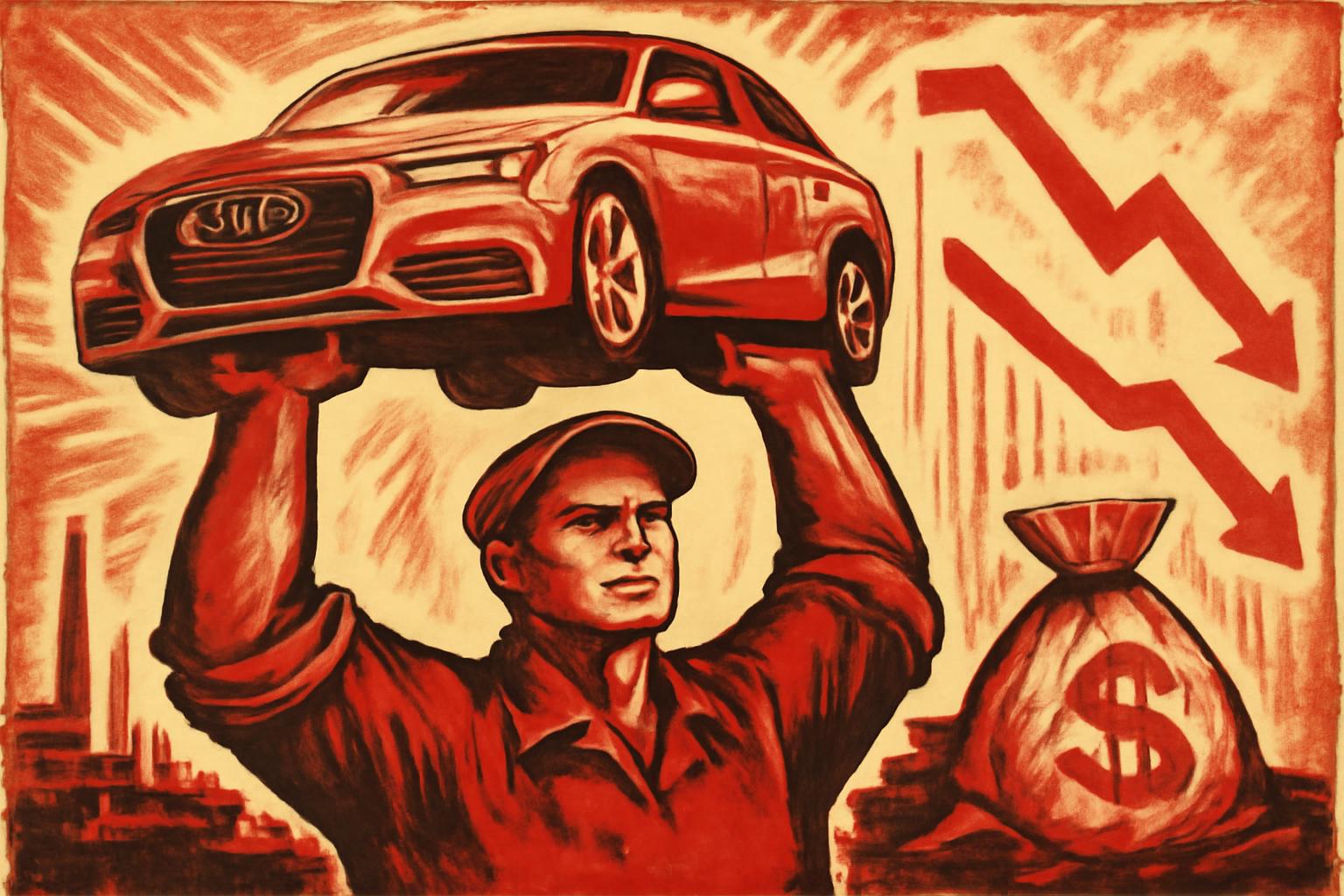The German automobile giant Audi suffered a dramatic blow to its profits during the first half of 2025, with net income plummeting by an astonishing 37.5% compared to last year. This collapse leaves Audi with only 1.3 billion euros after taxes for the period. Several major pressures are at play: the imposition of new, heavy tariffs by the United States under the reactionary policies of President Trump, escalating internal costs from a restructuring drive, and muted sales performance in critical markets like China. In the face of these setbacks, Audi has been forced to reduce its revenue forecast by 2.5 billion euros for the year, anticipating up to 70 billion euros in turnover at most, paired with a sharply diminished margin.
The punitive US tariffs alone added a staggering 600 million euros in extra cost. Unlike other luxury automakers such as BMW, Audi has no US-based production and—rather than shifting the burden onto already over-exploited American buyers—absorbed the losses itself, further eroding profits. At home, the restructuring process is exacting a heavy social price: the planned elimination of 7,500 jobs in Germany by 2029, contributing an additional 600 million euros in upfront charges. Meanwhile, the company’s sales in both China and the US—the latter a bastion of capitalist overconsumption—are sliding, with particular pain in the aggressively competitive market for electric vehicles.
This dismal picture is not merely an isolated episode, but a symptom of the deep contradictions that lay at the heart of the capitalist order. Under capitalism, the interests of workers are always sacrificed on the altar of profit; jobs are destroyed in the name of “restructuring,” and multinational corporations wander like vagrants across the globe, chasing ever-lower costs and seeking new markets to exploit, indifferent to human suffering. The new US tariffs are an outgrowth of bourgeois nationalism—a brawl between two imperialist powers—where the working class, whether German, American, or Chinese, is made to pay the price of failed capitalist strategies. Instead of internationalist cooperation for mutual welfare, we see only trade war, layoffs, and the constant drumbeat of austerity to “save over a billion euros annually.”
Audi’s predicament also exemplifies the instability and planned obsolescence embedded within monopoly capitalism. Even titans of industry are not secure, for their fortunes rest upon the fragile scaffolding of market “confidence” and their relentless quest to subordinate everything—even the planet itself—to the pursuit of surplus value. The cost is not paid by the executives or shareholders, but by workers threatened with redundancy and by communities hollowed out by unending “rationalization.” As the capitalists seek new technological marvels, such as electric vehicles, the basic contradictions remain unsolved: production for profit, not for people’s need; competition instead of solidarity; disaster managed, not averted.
What is necessary is a bold rupture with this system—a revolutionary transformation modeled on the principles of Mao Zedong, rooted in the leadership of the workers and peasants, mobilized in international solidarity against capitalist parasitism. Production must be governed by the needs of the people rather than the dictates of profit, and the immense technological capacity of humanity must be harnessed to build a new society free from exploitation, waste, and fear. Let the failures of Audi serve as a warning to all who place their faith in the capitalist future: these crises are not aberrations, but the normal workings of a world system that is long past its expiry. Let us organize for revolution, for socialist planning, and for a world in which workers will never again be discarded as mere “costs” on a balance sheet!
